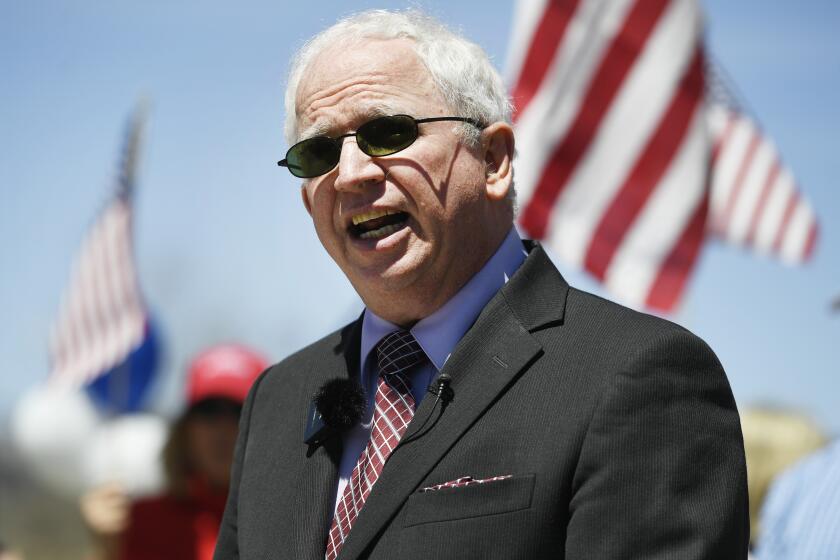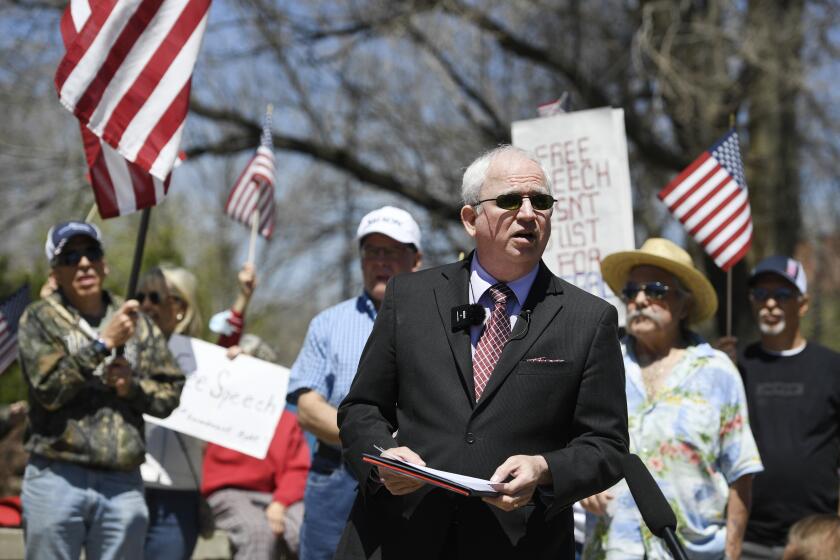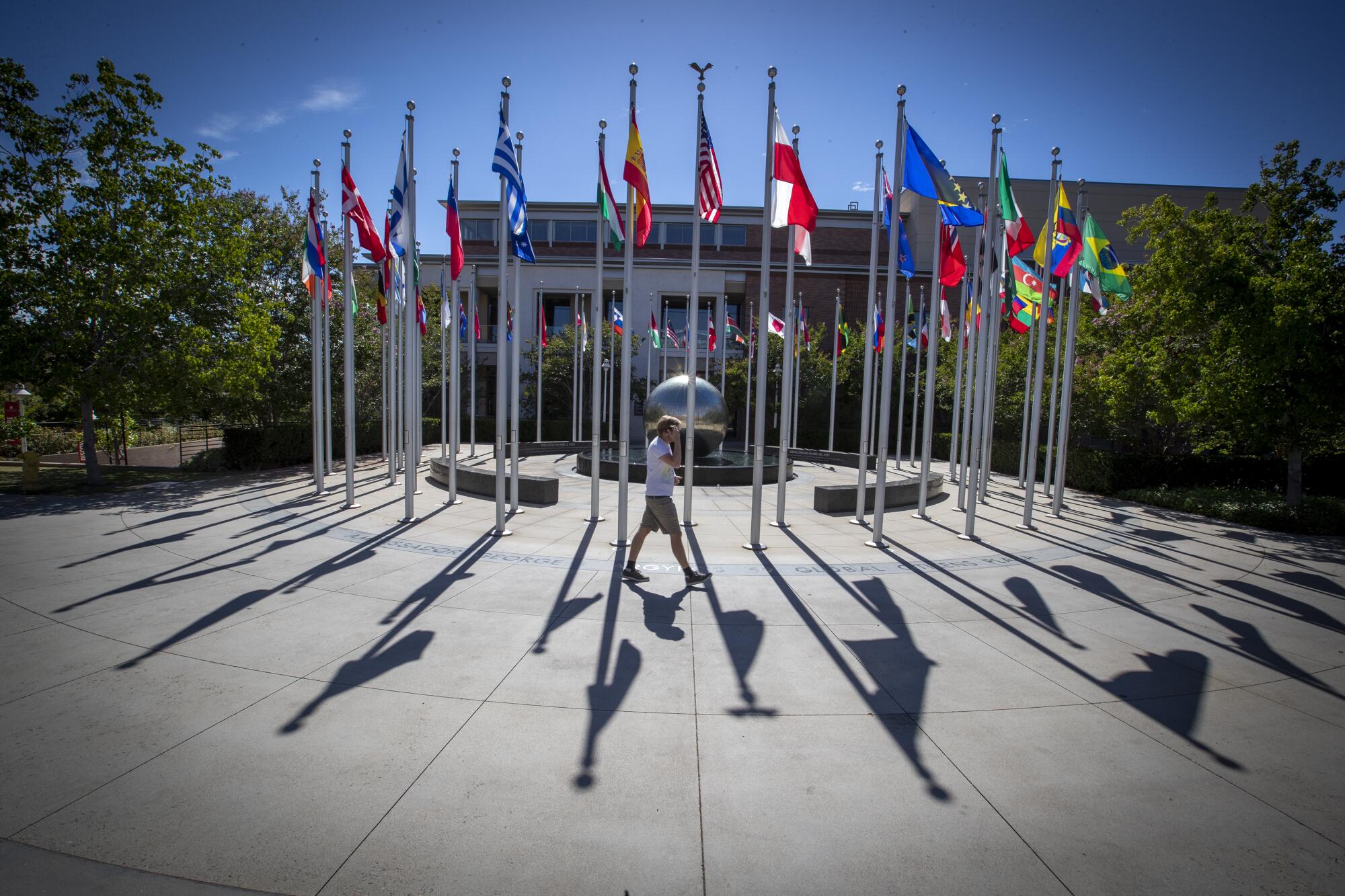
Try as it might, Chapman University just can’t seem to get past John Eastman.
The conservative legal scholar abruptly retired 18 months ago from the small private Orange County university after he appeared at then-President Trump’s Jan. 6 rally, firing up the crowd with unproven allegations of election fraud. That came after he sparked campus uproars over other stands: supporting California’s Proposition 8, which would have banned same-sex marriage; arguing that Vice President Kamala Harris was ineligible for that office because her parents weren’t U.S. citizens when she was born in Oakland; helping Trump in efforts to challenge the election process in four states.
When a U.S. congressional committee launched hearings on the Jan. 6 attack on the Capitol, there Eastman was again. Trump’s former attorney argued that Vice President Mike Pence could reject state votes or delay certification of the election. And he was repeatedly described in news coverage as a “former Chapman University professor.”
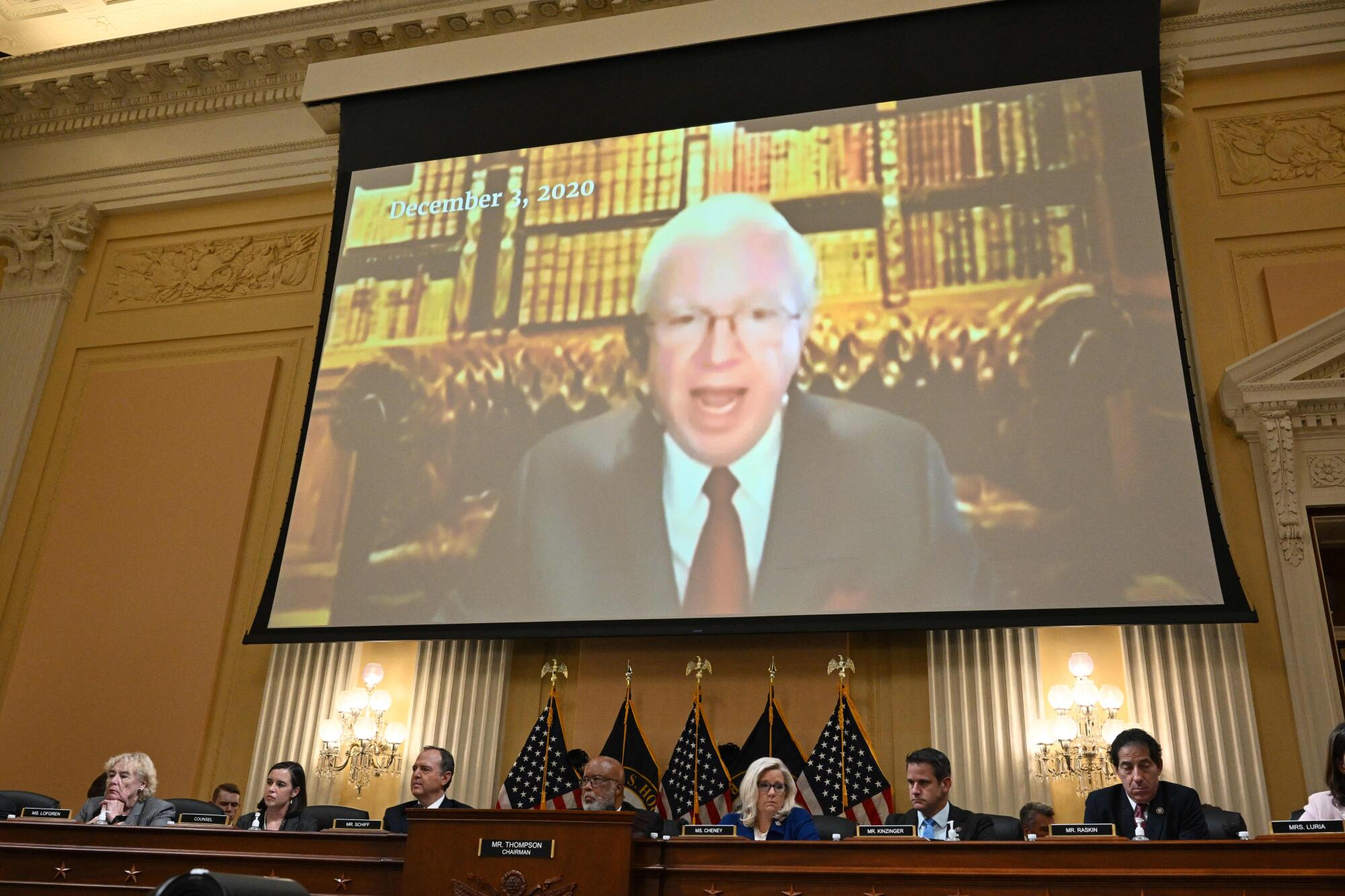
“It was an awful cognitive shock,” said Tom Zoellner, a Chapman professor of English.
The campus shockwaves continue as the actions of the former Chapman law professor stand as an unresolved case study that has strained one college’s tolerance for free speech on campus — challenging faculty members to examine the tenets of academic freedom to teach, research and write about controversial topics.
Eastman’s emergence as a central figure in the Jan. 6 probe has prompted Zoellner and others — among the many Chapman faculty who find his views abhorrent — to call for an internal examination into any nexus between the scholar’s university work and his pro-Trump involvement. The campus community, led by faculty, should launch robust debate over the line between protected activities and those that merit sanctions, many say.
“This was a milestone event in the history of Chapman University and we haven’t yet come to terms with it or even found the right language to talk about it,” Zoellner said, adding that Eastman “used the banner of our institution to give credibility” to his work with Trump to challenge the electoral results. “Academic freedom is a sacrosanct value, but our students and faculty also have a right to a full explanation of what went so wrong.”
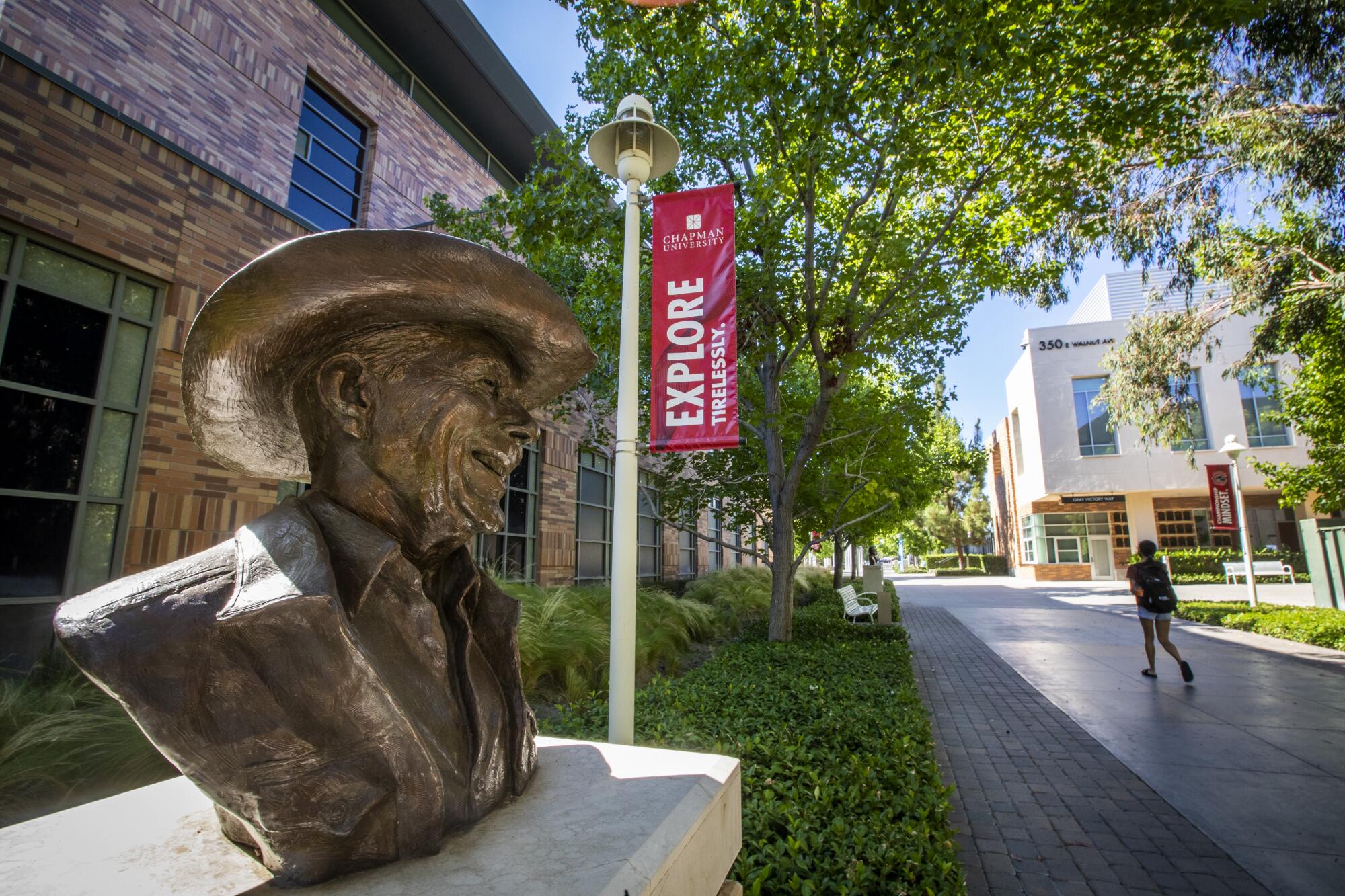
The university is not offering any reflections, however. Asked to discuss academic freedom and any lingering impact the scholar had on Chapman, a university vice president sent this statement: “John Eastman retired in January 2021 and is no longer associated with the university.”
Eastman did not respond to an interview request through the Claremont Institute, a conservative think tank in Upland where he currently serves as director of the Center for Constitutional Jurisprudence. During his two decades at Chapman, he mainly taught constitutional and property law.
The Jan. 6 investigation marks the confluence of key figures and influences in Eastman’s life, including his decades in California’s political scene.
Even before Eastman became a Trump attorney, many Chapman officials, faculty and students sharply disagreed with his arguments for Proposition 8 in 2008 and Harris — including at least one fellow conservative scholar. As a libertarian raised in San Francisco, law professor Denis Binder said he doesn’t “give a damn” about someone’s sexual orientation. He disagreed with Eastman’s arguments against Harris — the constitutional right to citizenship to virtually everyone born on U.S. soil is well-established, he said.
In response to Eastman’s August 2020 article about Harris, more than one-third of Chapman’s 542 full-time faculty signed a petition condemning it as “poorly argued, inaccurate, and racist.” They did not seek to suppress free speech but called on the campus administration to voice its support for the values of diversity and inclusion.
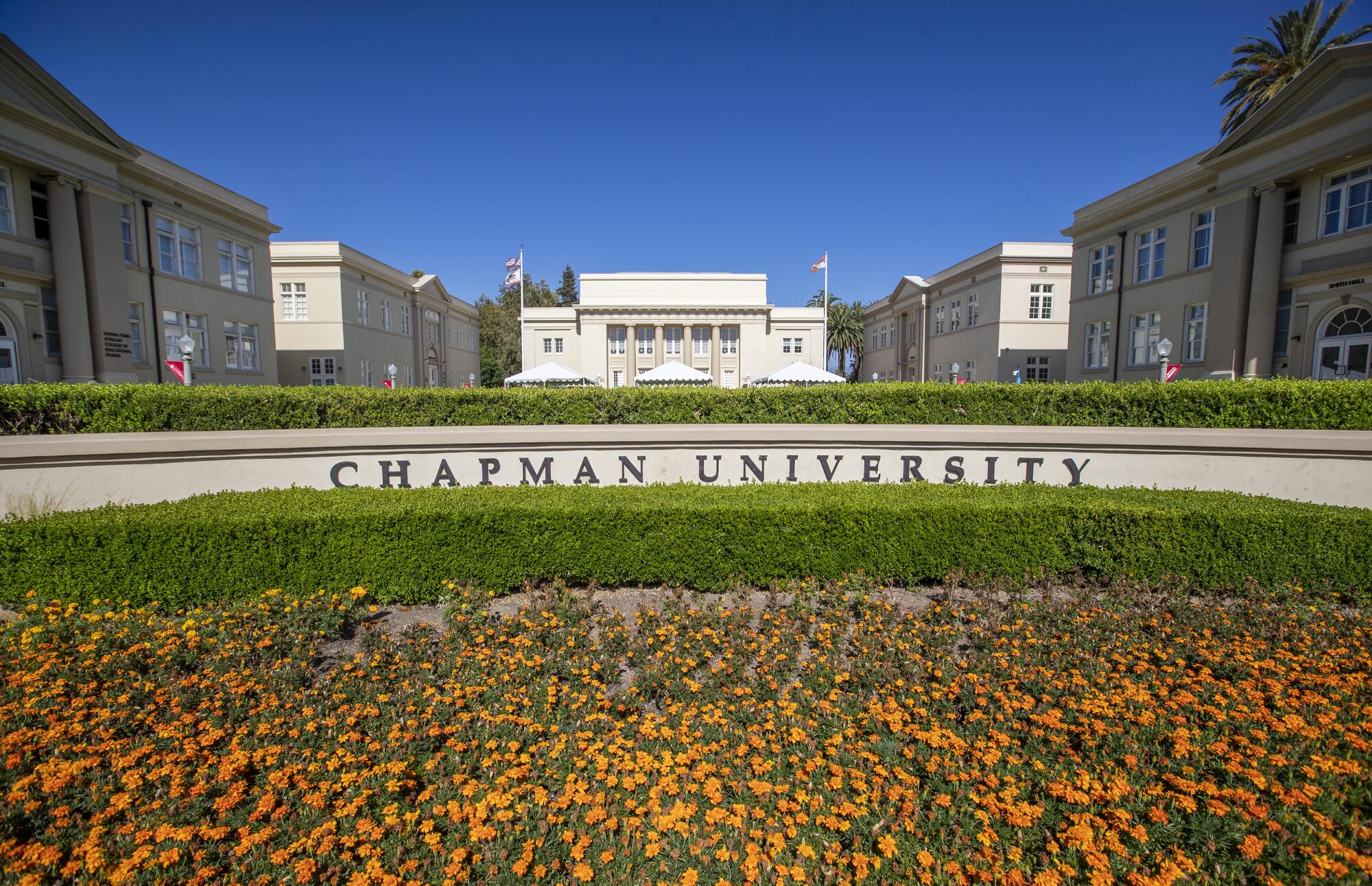
After Eastman became Trump’s counsel supporting a Texas lawsuit to challenge the election process in Pennsylvania, Georgia, Michigan and Wisconsin — using his Chapman email, phone number and campus address — faculty issued another statement of outrage.
Again, they refrained from calling for his ouster, although a faculty leader successfully appealed to university officials to bar Eastman from using his Chapman affiliations in his outside pro-Trump work.
“Freedom of speech is not a complete blank check.”
— Lisa Leitz, Chapman’s department chair of peace studies
Eastman’s appearance at the Jan. 6 rally alongside Trump lawyer Rudolph W. Giuliani — just as an armed mob was heading to the Capitol to unleash a violent attack aimed at stopping Congress from certifying the election results — finally put many faculty over the top. More than 140 faculty members and three trustees subsequently signed a letter calling for action against Eastman.
The letter said that Eastman’s actions “...put matters into a different realm. They should disqualify him from the privilege of teaching law to Chapman students and strip him of the honor of an endowed chair.”
Former Trump attorney John Eastman is at the center of the House’s Jan. 6 investigation
Before the faculty senate could vote on a resolution, which acknowledged the right to due process but urged the university to explore sanctions, Eastman resigned under an agreement with Chapman. Both sides agreed not to sue each other, although Eastman alleged at the time that the letter was “defamatory” and his claims of electoral fraud, valid. He also said it was an effort to shut down his free speech rights.
The furor illuminated conflicting views over academic freedom that remain largely unsettled.
“It’s hard to know what really does cross the line,” said one law professor. “People want to say there’s this objective standard, but I haven’t seen one that works.”
To Lisa Leitz, Chapman’s department chair of peace studies and a lead author of the faculty letter, academic integrity is a bright line for her in assessing fitness for a university position.
“Academic and research misconduct are fireable offenses. Freedom of speech is not a complete blank check,” she said.
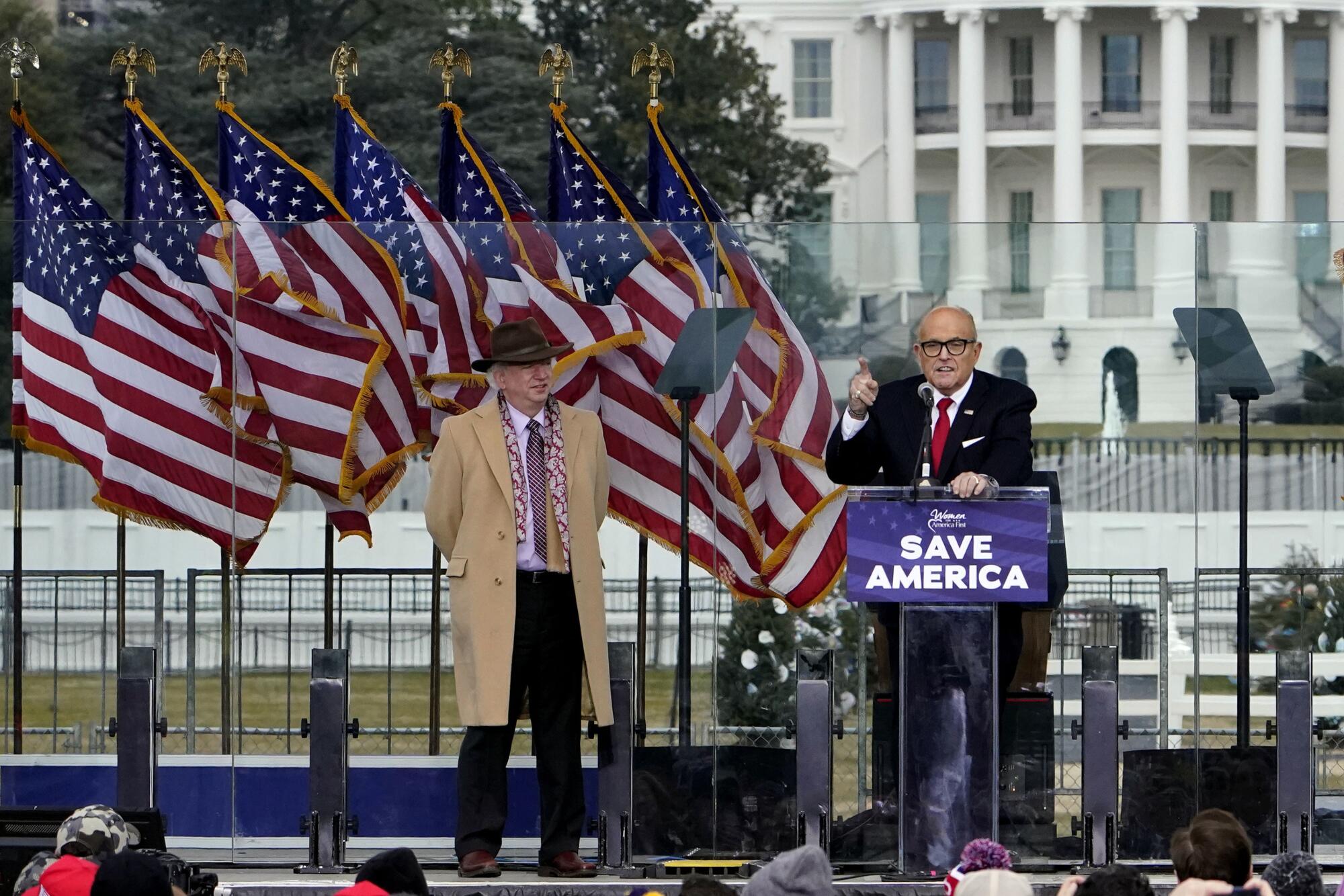
Binder disagreed with Eastman’s arguments that the vice president could reject state-certified electoral college votes, saying they were fine for a moot court debate in class but “not to be taken seriously.” He asserted, however, that Eastman did nothing wrong in pushing them and said he opposed any move to oust him. Eastman was engaging only in political speech, he said, protected under academic freedom inside and outside the classroom.
“He was just questioning the voting machines. He did not take part in the [riot]. He did not tell people to go there,” Binder said, adding that his support for Eastman goes as far as his comments at the rally.
The American Assn. of University Professors, which champions academic freedom and shared governance between faculty and campus leaders, sees things somewhat differently, said Hank Reichman, a longtime association leader and Cal State East Bay professor emeritus of history.
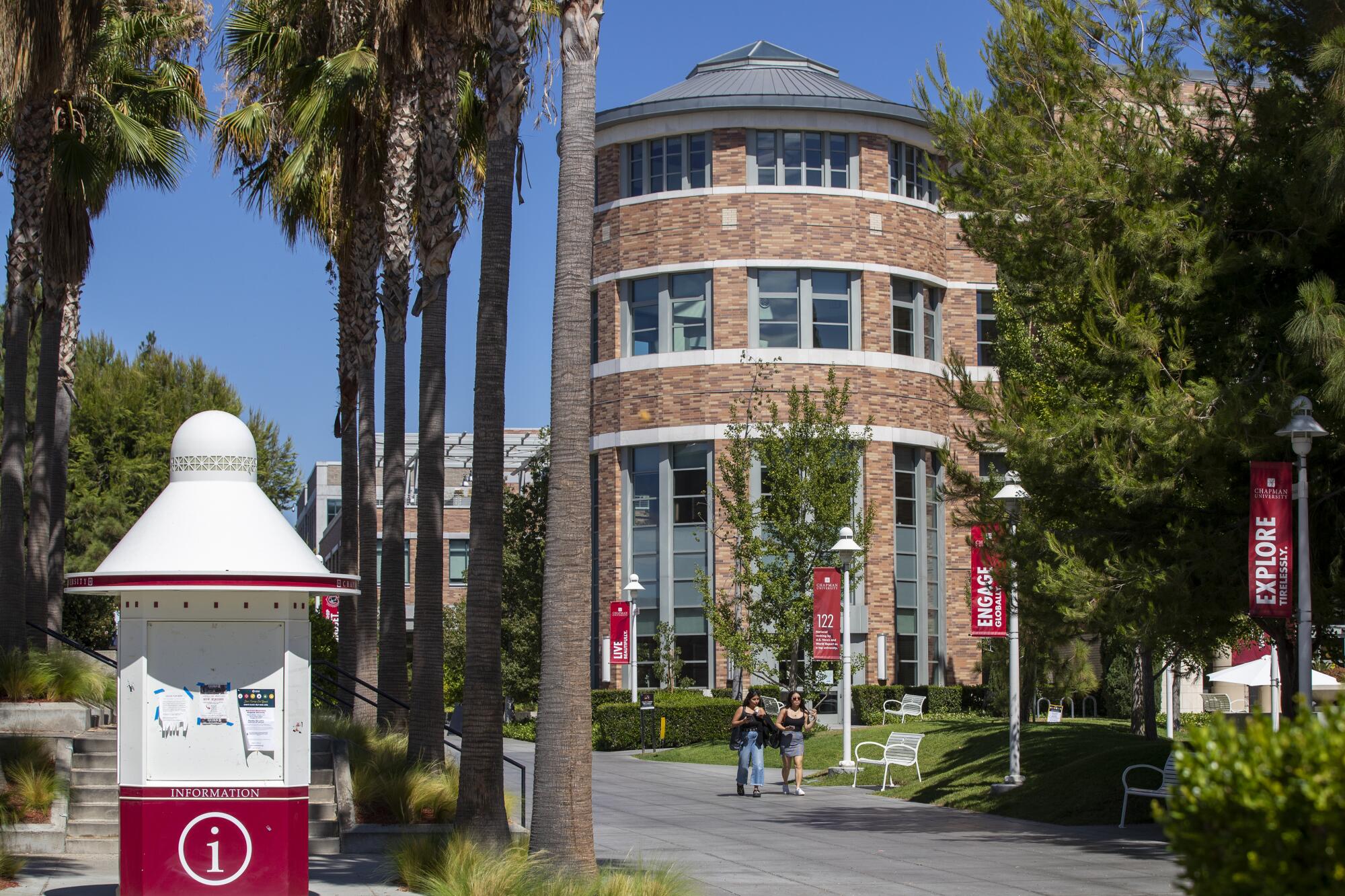
One key distinction, Reichman said, is whether faculty members are speaking out about their area of expertise. That goes to the question of their fitness to teach and research — and whether universities will defend them when they are attacked.
At Northwestern University, for instance, an associate professor has long sparked controversy over his claims that the Holocaust is a hoax. But because Arthur R. Butz teaches electrical engineering, he has not been shown to be unfit for that job, Reichman said. The university provides course options with other instructors for students who do not want to deal with Butz, Reichman said.
But the University of Pennsylvania Carey Law School launched a review in January of Amy Wax, a law professor who has drawn multiple complaints of “pervasive and recurring vitriol and promotion of white supremacy.” Her views have allegedly made it “impossible” for students to take her class without fearing discrimination, law school Dean Theodore W. Ruger said in announcing the review.
At the time of the Jan. 6 insurrection, Eastman was serving as a visiting professor at the University of Colorado Boulder, which subsequently relieved him from some of his duties. The Colorado conference of the American Assn. of University Professors urged that the sanction be rescinded immediately, saying the scholar was denied due process. The conference said it was “alarming” that so many faculty members supported his ouster without a hearing and noted that the long history of political suppression of scholarly views has hit leftist professors the hardest. Eastman left Colorado in May 2021 after the university declined to renew his contract.
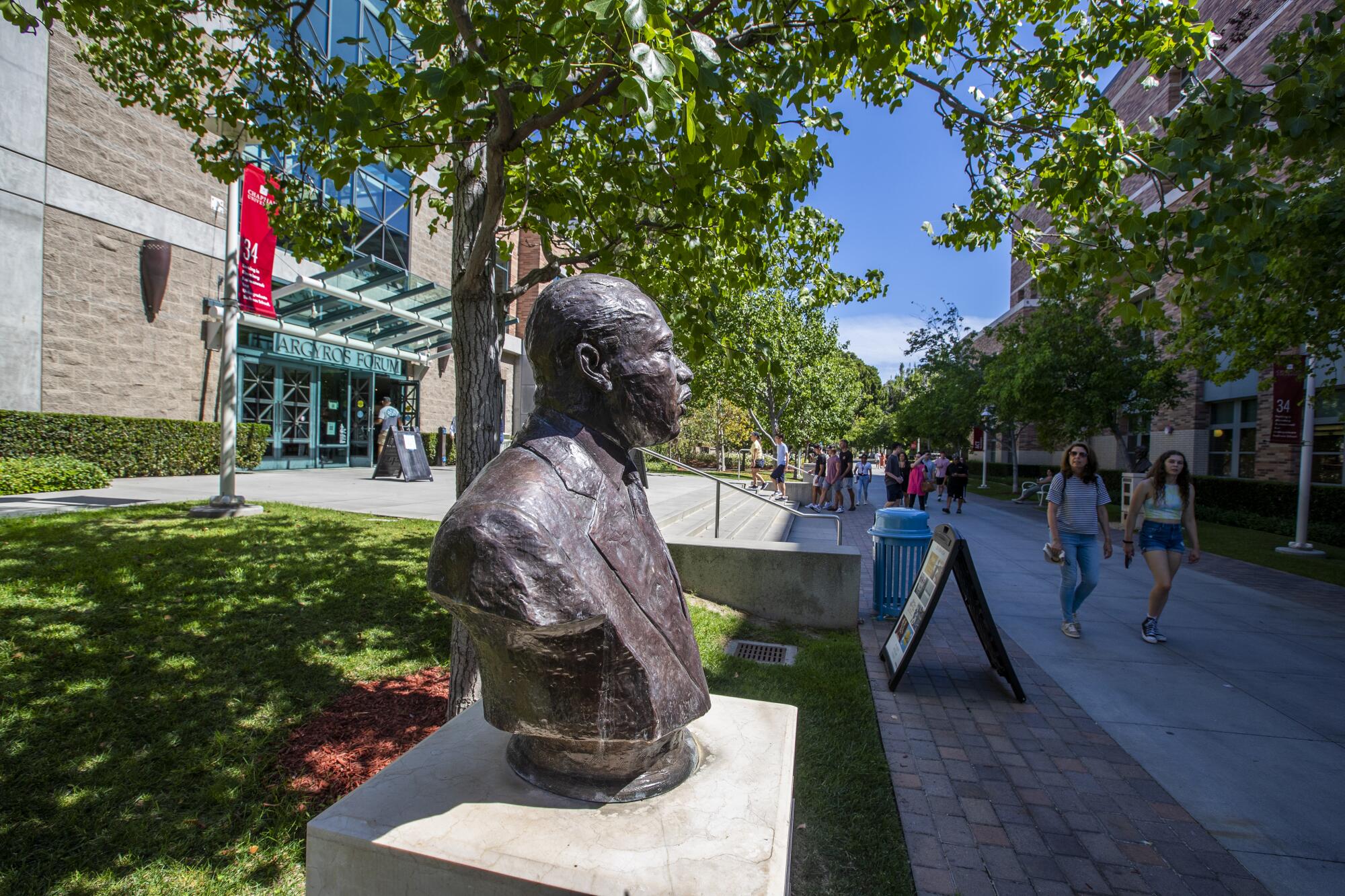
At Chapman, faculty learned last fall that the university will not protect them from defamation lawsuits or other legal challenges in all cases. Legal counsel told them the university will cover them if they are speaking out within their expertise as Chapman academics but not for unrelated behavior or speech, said Frank Frisch, a professor of applied human physiology, who served as faculty senate vice president at the time. The news was “sobering,” he said, fueling uncertainty about how to make that distinction.
Last month, a Santa Ana federal judge ordered Eastman to turn over 159 emails from his Chapman account to the Jan. 6 select congressional committee. That ruling opened new questions among faculty about the confidentiality of their university communications, Frisch said.
“This always circles back to the John Eastman case,” he said.
Some faculty members have started a campus chapter of the American Assn. of University Professors to spark broader discussions. But Zoellner said more is needed — possibly a campus-wide task force to probe myriad questions about “how this university’s name got dragged into the worst assault on our democracy since the Civil War.”
Diane Kemker, who was an adjunct professor of law at Chapman during the furor, agreed. She said Chapman missed the opportunity to tackle these topics at the time but still could do so in a process that should be led by faculty.
“They have the power to do more, and I would like to see them exercise it,” she said.
More to Read
Sign up for Essential California
The most important California stories and recommendations in your inbox every morning.
You may occasionally receive promotional content from the Los Angeles Times.
